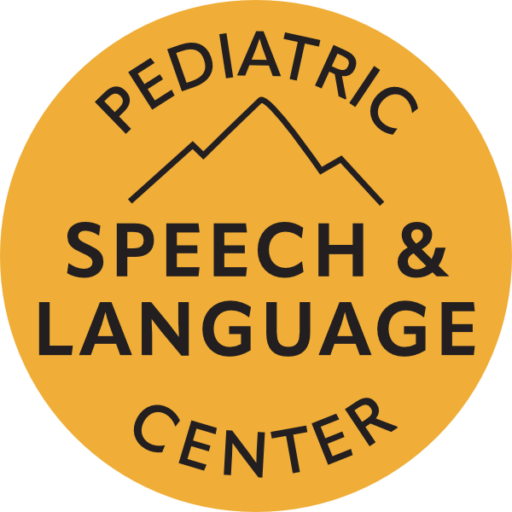
Sarah E. Van Winkle, M.S., CCC-SLP
“What caused my child’s delay? Was there something I did wrong?” As a Speech-Language Pathologist (SLP), these two questions are the most common questions asked by parents when I first meet them. The causes of speech-language delays are so versatile that there are no definitive answers. Therefore, my typical reply is something like, “Most kids develop in their own time; but, you did the right thing by seeking help”.
SLPs, are trained to be on the lookout for common speech delay ‘risk factors’ during our first interactions with your children; however, most of the intake questions only touch the tip of the iceberg. A child’s development is impacted by a host of factors, many of which are unknown or simply overlooked. In our ever-changing line of work, we strive to keep up with current research and hope that each day we are better clinicians than the day before. With that in mind, here are five less-familiar influences that could be guiding your child’s speech and language development.
- Screens
It’s so tempting to set kids in front of a screen when we need some peace and quiet. However, a pediatrician in Toronto studied 894 children and found that at their 18 month check-up, 20% of children were watching a hand-held device for an average of 28 minutes per day. The study went on to discuss that each 30 minute increase in daily screen time led to a 49% increase risk of expressive language delay[1].
Another study conducted by Cheung in 2017, found that touchscreen use was associated with less nightly sleep and later bed times. Cheung found children had a 16 minute loss of sleep for every hour spent on a screen[2]. This may not sound like much, but when we add it up over a week, that’s a lot of lost sleep during critical developmental times.
- Snoring
The jury is in that sleep is necessary for brain development, but let’s talk about snoring. While snoring may not be the cause of ineffective sleep, it can often be leading sign that your child isn’t getting enough oxygen at night, thus leading to disruptive sleep. When we ask parents if their child snores we usually get some odd looks. In turn, what we are truly asking is, “does your child have large tonsils or adenoids that are blocking their airway”. Obstructions of the airway can not only lead to lower cognitive function, but mouth positioning problems that often times require correction via speech therapy or dental intervention[3].
- Food
“Let food be thy medicine”, Hippocrates. Many studies have emerged in the past decade linking the gut health with brain health. Certain inflammatory foods, or inefficiency of nutrient rich foods, can lead to gut imbalance by reducing vitamin and mineral intake. Disorders including Autism, seizures, depression, and anxiety are understood to correlate with the microbiome in the gut; which could cause changes of behavior, cognition, and stress response [7,8]. Low inflammatory foods, including fish and vegetables, have been associated with a lower risk of cognitive impairment and slowing cognitive decline in older folks[9]. Therefore, your child’s food inventory may be an important topic we cover during your child’s evaluation.
- Siblings
In our clinic we often see siblings that share similar speech/language patterns. Research supports that siblings of individuals with language delays are more likely to have a delay than those without a sibling with a diagnosis[4]. Not only can a language delay in a sibling reduce the amount of words that younger siblings are hearing throughout the day, but siblings also take away maternal resources for the younger kids, resulting in less “talk time” with mom (or the primary caregiver)[5]. A study published in the Journal of American Academy of Child and Adolescent Psychiatry also found that a sibling of a child diagnosed with Autism has a 10-20% greater chance in being identified with characteristics of Autism themselves[6].
- Household Cleaners
A call to clean up our cleaning regime. Child exposure to household chemicals may also be tied to language delays. A study conducted at Ohio State University found, “significant associations with delays in language and cognitive development”, based on the report of 190 mothers[10]. When asked about their children’s exposure to toxicants, parents with reported higher levels of exposure were found to have children with lower language scores. Some chemicals, including several medications, have also been linked to have negative effects on hearing and balance. Those associated include:
• Arsenic– Parasites and microorganism inhibitors
• Benzene– Found in plastics, paints, cleaning agents, cigarette smoke
• Carbon disulfide– Pesticides
• Carbon monoxide– Vehicles, cigarette smoke, welding, gasoline-powered tools, cooking stoves, clothes dryers, etc.
• Styrene– Produced in plastics, insulating material
• Trichloroethylene– Dry cleaning, spot remover, rug cleaners, paints, waxes, pesticides, and lubricants
• Toluene– Paints, lacquers, adhesives, rubber, leather tanning, spray paint, and many other products
• Xylene– Paints, vanishes, and thinners
Wait, that’s not all. Prenatal exposure to phthalates, chemicals common in plastics, skin care products, flooring, dust, and toys, are associated with decreased IQ, as well as changes in behavior. Children who were born to mothers with high levels of phthalates their urine were up to 30 percent more likely to experience language delay, compared to children born to mothers with lower levels of phthalates [11].
Children are complex individuals, each shaped by a unique history from the time they were in utero until today. We rely on parents to be the most important part of the assessment team, as parents have the most experience with, knowledge of, and love for the little ones they are raising. A child’s daily environment, health history, and parent input are essential components for a Speech Pathologist’s assessment.
- Suggs, Katie. “Help Parents Replace Screen Time with Talking.” Leader Live, ASHAWIRE, August, 23rd, 2017, https://leader.pubs.asha.org/do/10.1044/hold-the phone/full/#:~:text=New%20research%20says%20no.,found%20difficulties%20with%20expressive%20language.
- Cheung, C. H. M. et al. Daily touchscreen use in infants and toddlers is associated with reduced sleep and delayed sleep onset. Sci. Rep. 7, 46104; doi: 10.1038/srep46104 (2017)
- Archambault, Nicole EdS, MS, CCC-SLP. “Heathy Breathing, ‘Round the Clock”. Breathing Easy, All Night Long. The ASHA Leader. Volume 23 Issue 2 February 2018. Pages 48-54. https://leader.pubs.asha.org/doi/10.1044/leader.FTR1.23022018.48
- Zubrick SR, Taylor CL, Rice ML, Slegers DW. Late language emergence at 24 months: an epidemiological study of prevalence, predictors, and covariates. J Speech Lang Hear Res. 2007;50(6):1562-1592. doi:10.1044/1092-4388(2007/106)
- Dollaghan CA, Campbell TF, Paradise JL, et al. Maternal education and measures of early speech and language. J Speech Lang Hear Res. 1999;42(6):1432-1443. doi:10.1044/jslhr.4206.1432
- Szatmari P, Chawarska K, Dawson G, et al. Prospective Longitudinal Studies of Infant Siblings of Children With Autism: Lessons Learned and Future Directions. J Am Acad Child Adolesc Psychiatry. 2016;55(3):179-187. doi:10.1016/j.jaac.2015.12.014
- Griffiths, J.A., Mazmanian, S.K. Emerging evidence linking the gut microbiome to neurologic disorders. Genome Med 10, 98 (2018). https://doi.org/10.1186/s13073-018-0609-3
- Pulikkan J, Mazumder A, Grace T. Role of the Gut Microbiome in Autism Spectrum Disorders. Adv Exp Med Biol. 2019;1118:253-269. doi:10.1007/978-3-030-05542-4
- ASHA Staff. “Mediterranean Diet Associated with Low Risk Cognitive Impairment.” Leader Live, ASHA WIRE, June 1st, 2020, https://leader.pubs.asha.org/do/10.1044/leader.RIB2.25062020.15/full/.
- ASHA Staff. “Child Exposure to Household Chemicals May be Tied to Language Delays”. Leader Live. ASHAWIRE. May1, 2020. https://leader.pubs.asha.org/do/10.1044/leader.RIB3.25052020.15/full/
- Bornehag C, Lindh C, Reichenberg A, et al. Association of Prenatal Phthalate Exposure With Language Development in Early Childhood. JAMA Pediatr. 2018;172(12):1169–1176. doi:10.1001/jamapediatrics.2018.3115
- ASHA Staff, “Chemical Exposure Effects on Hearing and Balance”. Audiology Information Series. American Speech and Hearing Association. 2015. https://www.asha.org/uploadedFiles/AIS-Chemical-Exposure-Effects-Hearing-Balance.pdf

